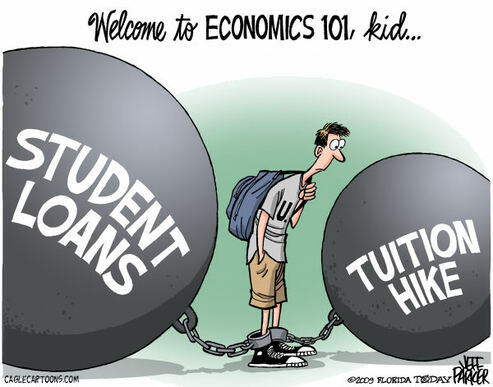 Credit: Jeff Parker, Florida Today
Credit: Jeff Parker, Florida Today
For graduates, HELB loans are a trail of tears.
 Credit: Jeff Parker, Florida Today Credit: Jeff Parker, Florida Today
Through the Higher Education Loans Board, the Kenya government has been lending loans to students for their university education fees, and using predatory, private sector practices to recover the money. Within a year of graduation, students have to repay the loan at 5,000 shillings a month, regardless if they have an income or not. Worse, HELB has partnered with the Credit Information Bureau to share information of defaulters.
For graduates, HELB loans are a trail of tears.
1 Comment
 A photo from the #Feesmustfall protest in South Africa Source: mediaforjustice.net A photo from the #Feesmustfall protest in South Africa Source: mediaforjustice.net In much of the research on neoliberalism and universities, Western scholars express concern for part time lecturers. They say that the casualization of academic labor means that the number of permanent faculty positions reduces, which in turn affects the quality of research output because part-time lecturers don't have the stability to engage in research. It also has an impact on student mentoring because part time lecturers are paid only to teach. But what happened in Kenya?  Source: ChroncileVitae Source: ChroncileVitae The Sidebar conversation on NTV last Wednesday came as a surprise for many. Many did not expect that a debate on education could be emotionally charged and, of course, I came under attack for being emotional. But the conversation was also a surprise for me, because with my conversations about marketization and neoliberalism, I thought that any education expert (which I do not claim to be), would be fairly familiar with global debates on the neoliberal tropes the Government of Kenya is using to justify the curriculum change. Nevertheless, the biggest lesson I learned from the NTV discussion is that the new curriculum was written on the basis of assumptions that the Government thought (or did not know) were not ideologically neutral. Here are some of them: |
|